The airstrikes in Yemen expand the war in the Middle East, draw Britain and America in deeper and risk an even wider conflagration.
Both countries have chosen a risky option that may not work and could make matters worse.
And in the minds of millions across the region, the UK and US will be seen to have taken an active military role now in support of Israel.
Follow live: Footage shows moment RAF jet strikes targets in Yemen
The UK and US will argue they had no choice and the Houthis had been warned. They had to act, we will be told, to protect global shipping, not least for economic reasons. The Houthis’ disruption of shipping lanes has wrought chaos in international commerce.
But there are several good reasons why the escalation may be counterproductive and dangerous.
Are the Houthis likely to be deterred by these attacks? Ask the Saudis. They have tried for eight years to use military force to control and deter them with little success.
The Houthis are a determined and resilient fighting force, nimble and fleet-footed in the deserts of Yemen. The assets they have deployed against international shipping are mobile.
It is not like striking a conventional Arab force like Saddam Hussein’s in the Gulf War, for instance. Their guerilla fighters will most likely keep one stage ahead of the aerial campaign to destroy them.
Instead they are likely to escalate their activity in retaliation with the continuing support of Iran. That could lead to attacks elsewhere in ways Western military planners have not anticipated.
Read more:
Iran says attacks on Yemen are ‘clear violation of sovereignty’
Analysis: What will happen next?
Who are the Houthis?
UK and US are now directly fighting Iranian allies
Most worrying though the intervention draws Britain and America closer to a confrontation with the Houthis’ Iranian patrons.
They are now directly fighting Iranian allies. That is an ominous development for the Middle East.
The challenge with military offensives is always keeping them contained. One thing often leads to another.
Iran most likely still wants to stay on the sidelines playing mischief and using surrogates in this regional conflict. But the laws of unintended consequences always apply in conflict.
Was the attack necessary?
Miscalculations and mistakes can lead to escalation and take events in unpredictable directions. And there is always the danger of the ayatollahs’ other proxy militia, Hezbollah, escalating from sparring with Israel to full-scale war over their shared border.
Was last night’s action and more to come necessary?
The Houthis say their Red Sea attacks have been in protest at Israel’s offensive in Gaza and the deaths of thousands of Palestinians there.
A ceasefire in Gaza would likely end their attacks on ships and the launching of cruise missiles aimed at Israel.
But the British and Americans say Israel has a right to continue fighting until Hamas is neutralised even if they are increasingly alarmed at the excessive number of civilians being killed.
No clear sense when Israel’s war aims will be achieved
Britain and America will insist this action is surgical and aimed solely at making the Red Sea safe again.
But that is not how millions across the region will see it. To them, Western countries are now using military force to support Israel and allow its bloody Gaza offensive to continue
There is still no clear sense from Israel when their war aims will be achieved. The war in Gaza has no end in sight and its repercussions are becoming more and more grave across the region. The contagion is unlikely to end here.



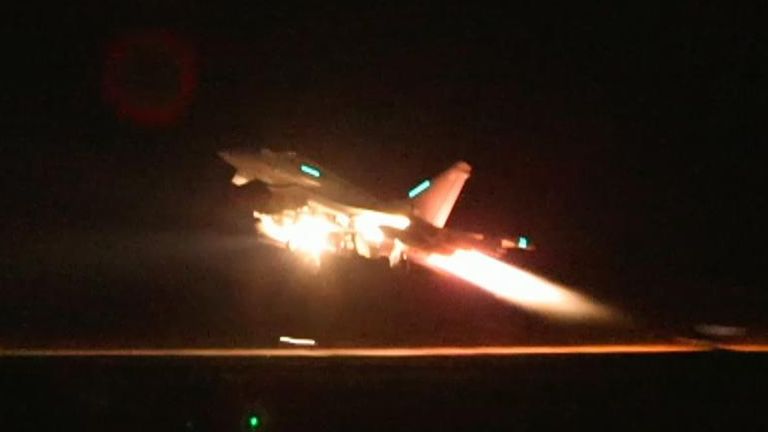
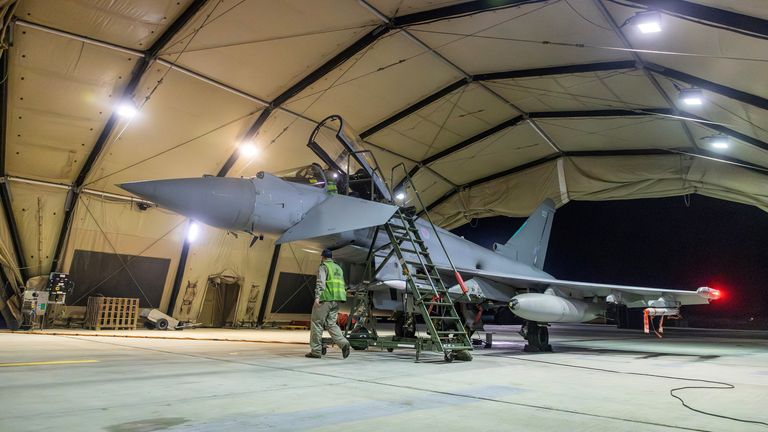
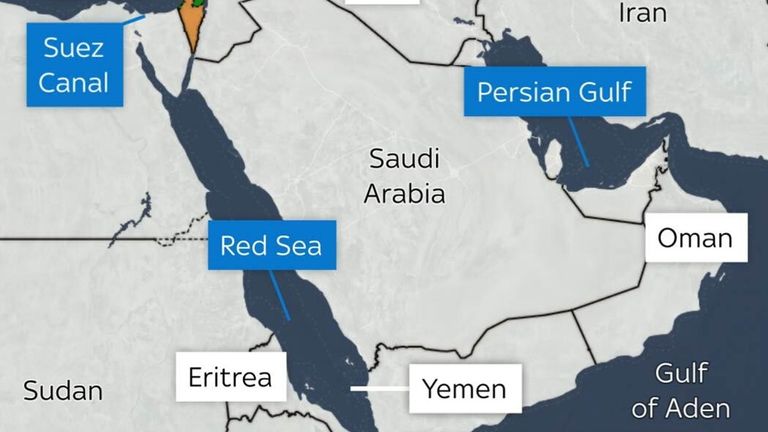
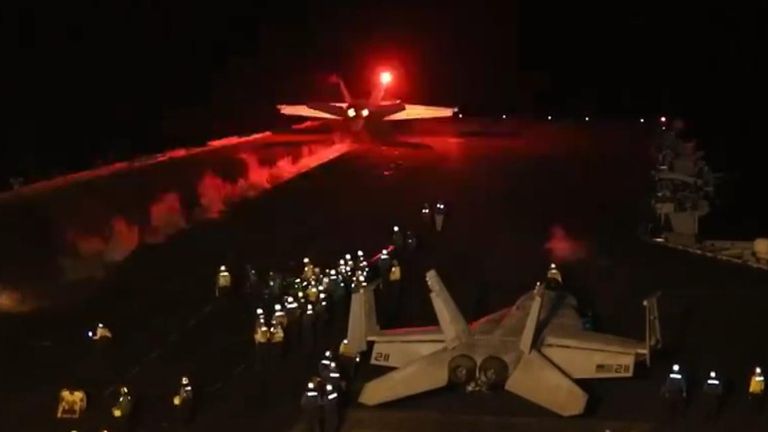
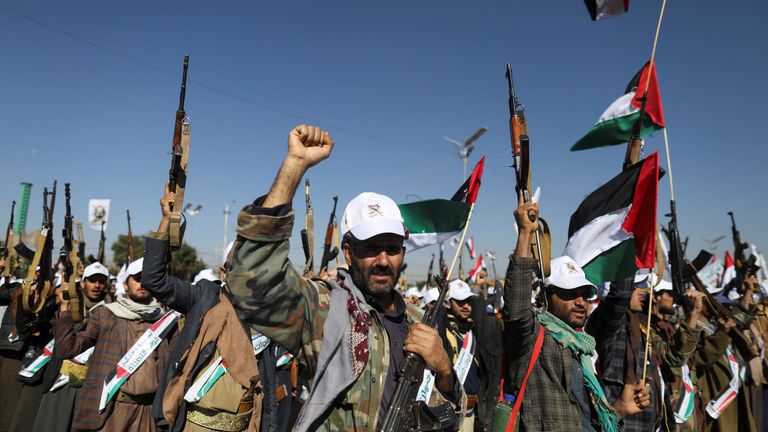
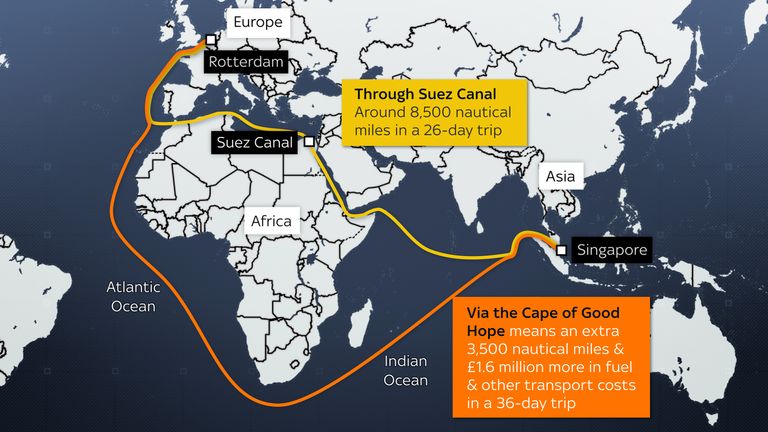
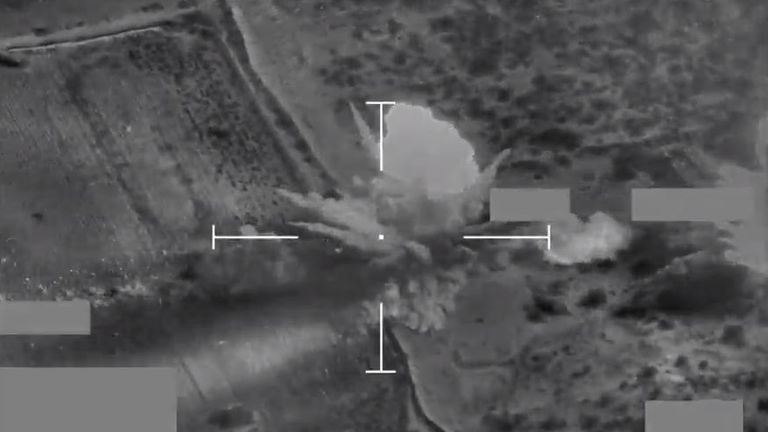





![“I made Shatta Wale who he is today” – Singer Kay Smooth alleges [Video]](https://ghananewss.com/storage/2023/04/Kay-Smooth-Shatta-Wale-100x75.jpeg)

![Mr Logic’s Red Panther record label officially signs two Afro-dancehall artistes[Video]](https://ghananewss.com/storage/2023/05/Mr-Logic-signs--100x75.jpeg)







